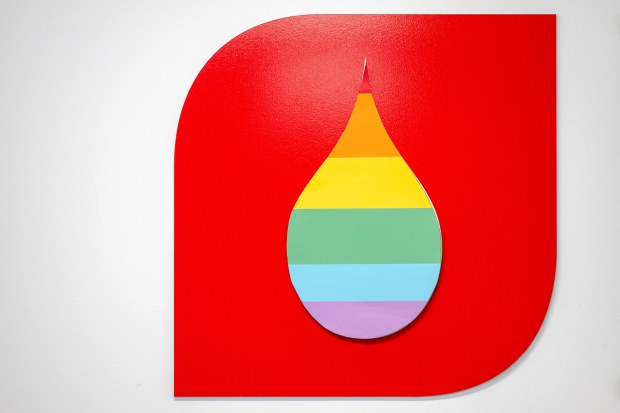Blood
Inland blood banks embrace new donor guidelines, after FDA relaxes decades-old policy that restricted gay men
Riverside resident Ryan Bailey was both “excited and sad” to be donating blood for the first time at a recent blood drive.
“As a gay man, I was never able to donate blood,” Bailey, 56, said. “In the past, I’ve had family members and friends who have needed blood, and I couldn’t do anything about it. I’d have to sit and hope that other people would be able to donate.”
Since the U.S. Food and Drug Association relaxed its decades-old policy on assessing individual donors, Bailey was able to take part. The new guidelines, which make donor questions more inclusive regardless of sexual orientation, sex or gender, went into effect in August.
Bailey helped organize an Alphabet Blood Drive on Wednesday, Oct. 11 for National Coming Out Day, held at the LifeStream Blood Bank in San Bernardino. The event, he said, aimed to raise public awareness about the new changes, while encouraging those in the LGBTQ+ community to donate and help boost supply.
LifeStream, which supplies blood to over 80 hospitals across Southern California, is among a handful of Inland Empire blood banks that have implemented the FDA’s new rules regarding donor eligibility. The American Red Cross and the San Diego-based Southern California Blood Bank, which serves southwest Riverside County, also updated questionnaire policies.
The blood banks hope the looser restrictions for potential donors will also combat the national blood shortage, which the Red Cross declared on Sept. 11. Officials cited a “critically low” blood supply level nationwide that dropped nearly 25% since early August.
Still, the updated guidelines reverse what many advocates called an outdated, exclusive system.
For nearly four decades, guidance from the FDA banned most gay and bisexual men from donating blood, regardless of their health history. Following the HIV/AIDS epidemic, men who slept with other men were strictly banned from giving blood unless they had been abstinent for at least three months — a move many critics called discriminatory to the LGBTQ+ community.
But the new rules strike any gendered questions based on sexual orientation and history, instead using a “risk-based” donor eligibility questionnaire that evaluates individuals for HIV — developed by the Association for the Advancement of Blood and Biotherapies and approved by the FDA.
American Red Cross spokesperson Christine Welch said that new guidelines were implemented by the national blood bank in early August. The Southern California Blood Bank hopes to fully implement the new questionnaire, and update its processes, by October 20, according to its website.
“We commend the FDA on its commitment to following the best available science to inform and revise their recommendations to be more inclusive, expanding those eligible to donate blood, while maintaining the appropriate safeguards to protect patients,” officials at the Southern California Blood Bank stated.
Michael McDaniel, the director of donor recruitment at LifeStream, said the biggest difference between past policies and the new ones is that donor questionnaires now “focus on individual sexual health and not groups of people.”
“Before, if a man was having sex with a man, even though they were husbands in a closed relationship and were not having other partners and therefore having safe sex, they still weren’t allowed to donate blood,” said McDaniel. “So it’s really opened the door for a lot of gay men, especially those who are engaging in safe sex, to be able to be blood donors.”
McDaniel said that female donors were not asked about sexual history before. With the updated guidelines, regardless of gender or sexual orientation, all potential blood donors will be asked the same questions and assessed for eligibility, based on individual risk factors.
“As long as that individual is not changing (sexual) partners regularly, they have the same partner or partners for a three-month period of time, and are engaging in safe sexual practices, then they are eligible to donate blood,” said McDaniel.
For Bailey, donating at Wednesday’s Alphabet Blood Drive, and on National Coming Out Day, was a “full-circle moment.”
Nearly a decade ago, in 2014, he co-chaired a National Gay Blood Drive in San Bernardino, as one of 60 U.S. cities participating. Back then, LGBTQ+ allies would donate blood in honor of loved ones who were not able to because of their sexuality, Bailey said.
He and co-chair Terri Proctor organized Wednesday’s community blood drive to show that “gay men are a viable resource for blood donations.”
Rachel Roche, from Riverside, also donated for the first time on Wednesday.
“I want to support the community and my friends,” Roche, 49, said while getting her blood drawn. “I’ve never given blood, so this is a new thing for me, but just wanted to be supportive.”
For a list of donor eligibility requirements, local donation centers and upcoming drives, visit lstream.org, redcross.org and scbloodbank.org.
Staff writer Allyson Vergara contributed to this report.





